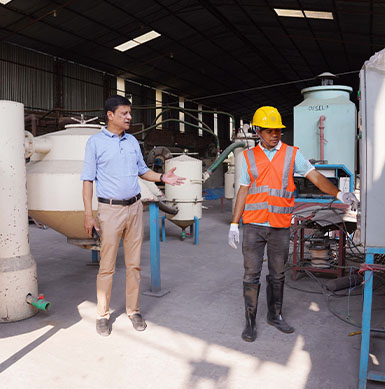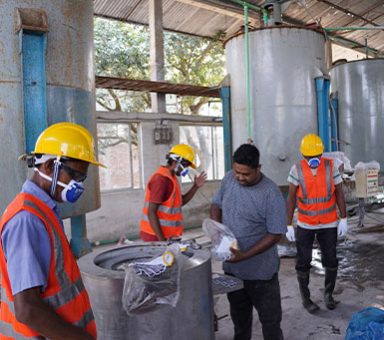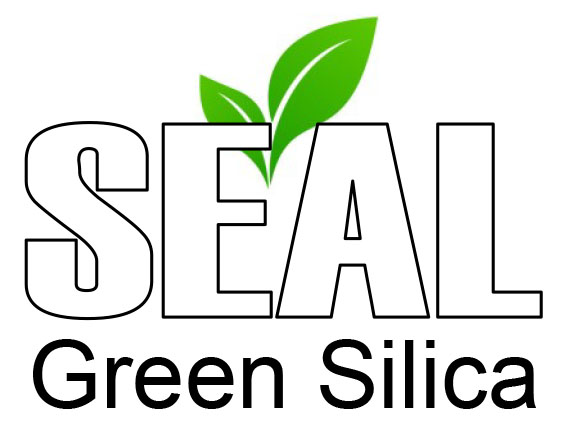

Sustainable Energy & Agro-Resource Ltd.
- Biomass Gasification based power generation plant with Zero Carbon emission.
- First Rice Husk Ash based Precipitated Silica production plant in our country. country.
- Rice Husk Ash based Liquid Sodium Silicate production unit.
- Precipitated Calcium Carbonate (PCC) production Plant.
Rice Husk Gasification & Power generation:
Bangladesh produces about 40 million tons of rice that would produce 8 million tons of rice husk, most of the rice husk used for rice parboiling with a very inefficient way. After burning the Rice Husk about 2.2 million tons ash are generated, at present there is no commercial utilization of these waste materials, all the ash are dumped in open areas and it creates environmentally hazardous condition and air pollution for the neighboring areas.
Biomass is a renewable source and its application as a fuel generates minimum level of CO2 emission, but the most unique feature of our project is; during Silica production we are recovering the total CO2 from generator flue gas, as a result our power generation is completely Carbon emission free.
Biomass gasification technology is widely used as a cost effective and eco-friendly source of power generation. In fact, biomass gasification, technology is already picking up in many countries as a major renewable energy source. This technology qualifies for reduction in Green House Gas (GHG) emission and carbon trading through clean development mechanisms.
Precipitated Silica from Rice Husk Ash:
In Bangladesh about 2.2 million to Rice Husk Ash are generated per year. At present there is no significant use of these hazardous residue, all the ashes are dumped openly in the mill neighboring areas, it creates severe air pollution, soil damage and every year this problem on the rise.
To address the on-growing environmental problems and convert the most abundant agricultural residue to a valuable product, “Sustainable Energy & Agro-resource Ltd” has been successfully developed and established as the first Husk Ash based highly dispersible Silica, Colloidal Silica and Silica Nanoparticles production process first time in Bangladesh.
The technology has various advantages over conventional precipitated silica production technologies. The conventional technology uses sand as a base material for silica which requires about 1400-15000C temperature and hazardous Acid whereas SEAL’s process requires only 1100 C temperatures. The technology is eco-friendly and can produce better quality silica as compared to existing conventional methods.
Our developed process is cost effective, environment friendly and easier to operate in context of Bangladesh. Precipitated silica uses:
- Rubber Industry as main compounding material and reinforcing
- Agricultural chemicals as a
- Paper coatings, paints, inks & adhesives
- Tooth Paste as cleaning
- Food Industry as anti-caking agent
